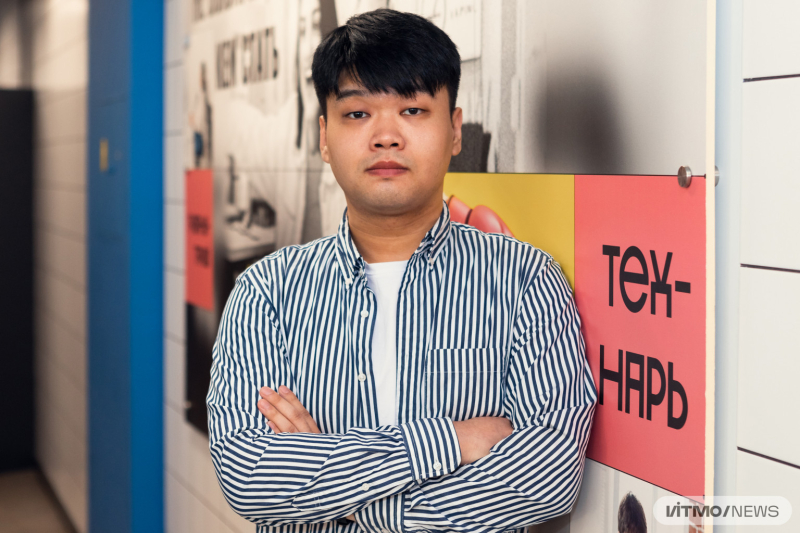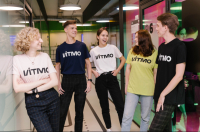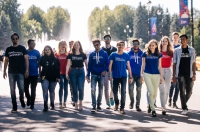Contents:
Why study in Russia
My hometown is a border city between China and Russia, with the Russian city of Blagoveshchensk being just across the Amur River. Many Russians come to Heihe, so nearly all locals know some Russian. My parents live and work in Blagoveshchensk so they speak Russian well.
I’ve always been fond of the Russian language. It’s more fun and complicated than English – and somehow reminds me of math. Not to mention that here school students who are studying Russian can get extra points when entering high school. I started to learn Russian when I was 14. I’m 26 now, and I’m much more confident in my skills.
Even though I did enroll into a university in China, I opted to study in Russia for a couple of reasons.
For starters, I had a chance to study at ITMO for free through the Government Scholarship, which wouldn’t be the case in China.
I also thought that staying in my hometown could be boring as I’d been there my entire childhood. I hadn’t been to Russia or any other European country before. But I wanted to travel so studying abroad seemed like an excellent way to see more of the world.
And third, I’d heard that Russia offers quality education in an array of fields, IT in particular. That was the field I was most interested in. I was in the last year of school when a friend of mine who studied in St. Petersburg told me that I can do what I love at ITMO and recommended me to get in.
Prior to making the decision, I did my research on the city. I looked up its location (I’d no idea it is located on the Baltic Sea) and cost of living, as well as searched whether my country had a consulate in the city. After that, I studied local universities and was most impressed by ITMO. When I learned that the university’s main building was right in the city’s downtown and there were numerous IT programs that sparked an interest in me, I finally settled on my choice.
Read also:
How To Study Abroad For Free: ITMO Student’s Story
ITMO Retains Position in Global Top 100 of QS Computer Science Rankings
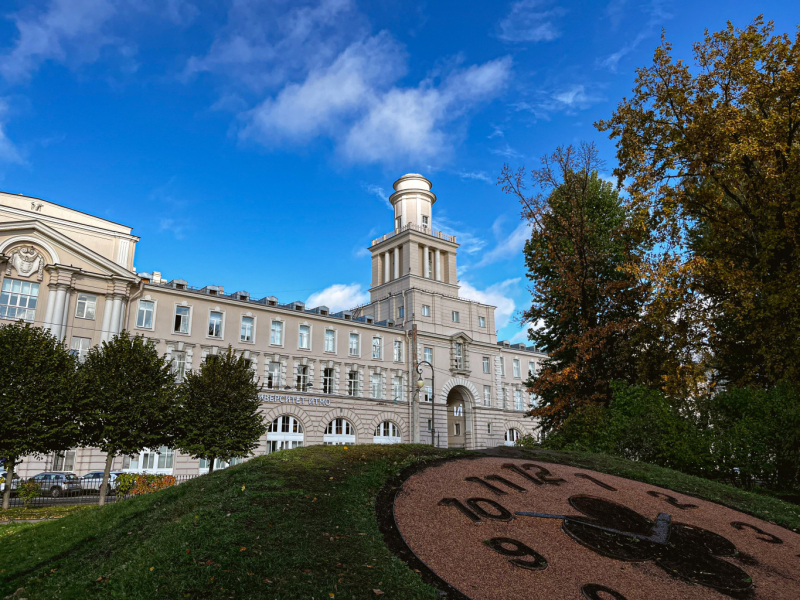
ITMO’s main building in the historical center of St. Petersburg. Credit: ITMO University
Why choose ITMO
Language training. Even though I’d studied Russian since school, I still experienced a language barrier: for one, I had no trouble talking to locals at the airport but when it came to social and cultural differences or finding the correct words and describing math formulas I did struggle. So, before entering the university, I studied at the Foundation Program for a year to boost my Russian skills and even took specialized disciplines, like mathematics and computer science, in the language.
The course was beyond helpful, especially when I started Humanities and IT at the university.
“Our program trains IT specialists who can process and analyze data, build mathematical models, analyze and interpret results, create IT-related design specifications, run theoretical and applied studies, and hold business discussions in any field. Though this is a Russian-taught program, international students are free to adapt to the language and culture at their own pace, whilst becoming sought-after specialists. Our curators are always here to help,” says Daniil Kho, the manager of the Bachelor’s program Humanities and IT.
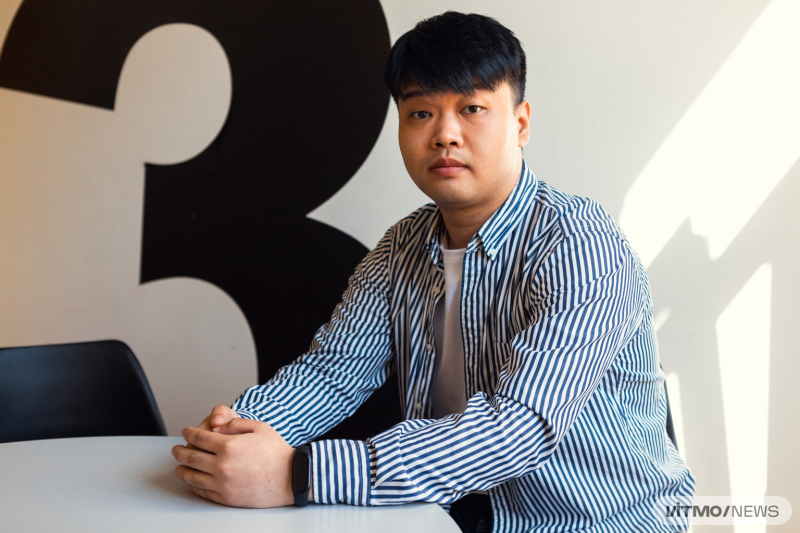
Xiaobo Li. Photo by Dmitry Grigoryev / ITMO.NEWS
Practice over theory. Computer Networks, Artificial Intelligence, Web Programming, and Programming in Python – all these courses got me job-ready. Yet, I believe it’s just as crucial to gain knowledge as to put it to action. Luckily, there’s no such problem at ITMO. Here, I coded a lot. I built databases and chatbots, and also designed websites.
In my final year, I got into computational linguistics and natural language processing so I went on to develop an AI-aided review classification system. Technologies like that automatically process and analyze customer reviews and classify them into positive or negative ones, thus making it easier for other users to filter opinions according to their needs.
I decided to develop a similar tool, like the one used in the Chinese version of the AliExpress website, for the Russian one using Python. Here is how it works. Say, a user wants to purchase a robot vacuum cleaner but can’t find a suitable option. In order to help them choose the right one, the system goes through consumer reviews of various devices and generates clouds of words most often found in reviews (e.g., noisy, fast, beautiful) so that the user could easily study all the pros and cons of each device.
Truly caring teachers. This is particularly important for international students who are already under a lot of stress because of the new environment and language. I knew I could always reach out to my teachers, if, for instance, I couldn't understand the assignment. On top of that, not all Chinese students can speak Russian or English fluently, so it was nice to have someone around who can speak Chinese, like Daniil Kho. I love that here teachers try to help and support their students.
Read also:
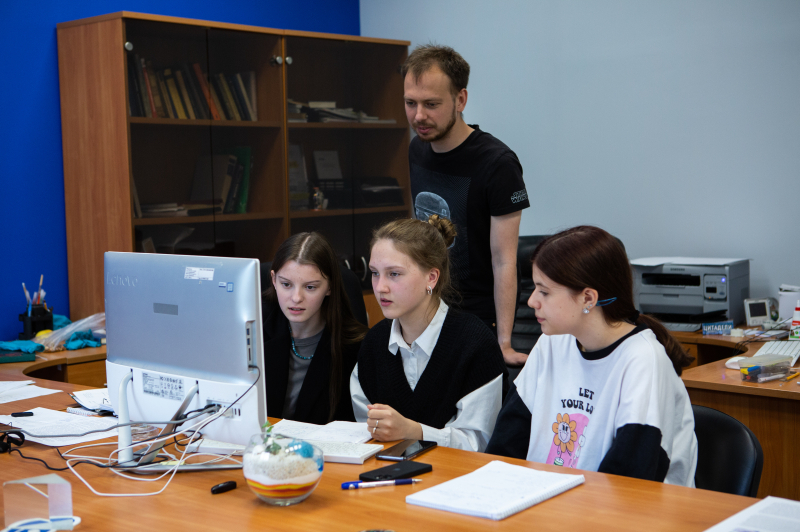
Classes at ITMO University. Credit: Maria Bakina / Mediaportal ITMO
Life in Russia
The first thing that caught my eye as I was landing in St. Petersburg was the gray sky and lots of clouds. But that didn’t scare me off. I come from a city with a similar climate, though not such dark nights. So it was much easier for me to adapt to the new place, rather than get up for an 8.20 am class.
At first, I struggled to understand what the teachers were saying. After the Foundation Program, I thought I knew Russian but it turned out that I still had a long way to go. The thing is, sometimes when we had classes with students from other programs, teachers didn’t slow down their speech because there were many Russian-speaking students present. But when I didn’t understand something, I always asked the teachers to send me their presentation and my fellow students to borrow their notes. If I still couldn’t figure something out, I’d ask someone to explain it to me. Anyhow, I got used to studying in Russia only after I finished my first year here.
After classes, there were other adventures, like the dorm life. Living in a dorm, I realized how important it is to make friends with the security guards. Whenever I returned late, they chided me a bit but let me in anyway. There were other funny stories, as well. Once, I wanted to cook meat, so I went to a store and asked the salesman for some meat. But instead of saying “a kilo of meat”, I went on to say “a kilometer of meat.” The salesman was stunned – but I shortly realized that I said something wrong and corrected myself.
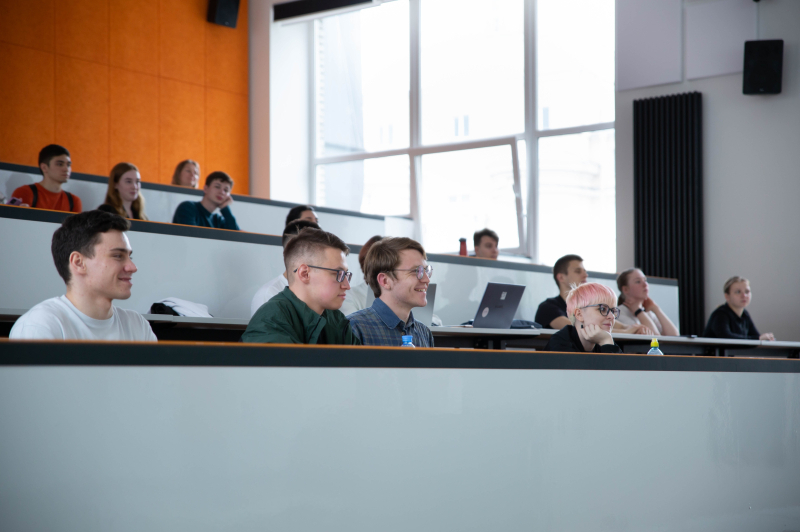
Lectures at ITMO University. Credit: Daria Smirnova / Mediaportal ITMO
Future plans
After my Bachelor’s, I enrolled in the Master’s program Digital Transformation Strategies and Technologies and I have already completed my first year. Everything I learned during my Bachelor’s is of big help now, especially when we talk about Russian language and Python programming.
For example, I’m currently working on the second chapter of my thesis, where I explore how information technologies accelerate digital transformation of the Chinese manufacturing industry. As of now, China sets priorities for its digital economy. The country continues to improve its 5G networks to connect more houses to the internet, implement AI technologies and industrial robots, as well as use AI to analyze big data and thus build enterprise development strategies. I am using Python to collect data from around 600 enterprises to study the effects of the digital transformation.
After graduation, I will go back to my homeland to work there for two years. That’s the requirement I need to fulfill because I received a scholarship from the Chinese government for my Master's. I’d like to work in an industrial company and continue being a part of the digital transformation in China.
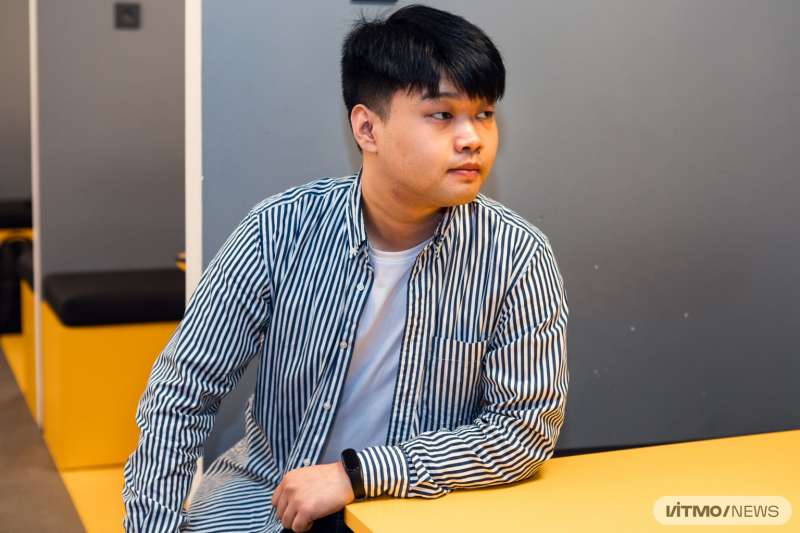
Xiaobo Li. Photo by Dmitry Grigoryev / ITMO.NEWS
